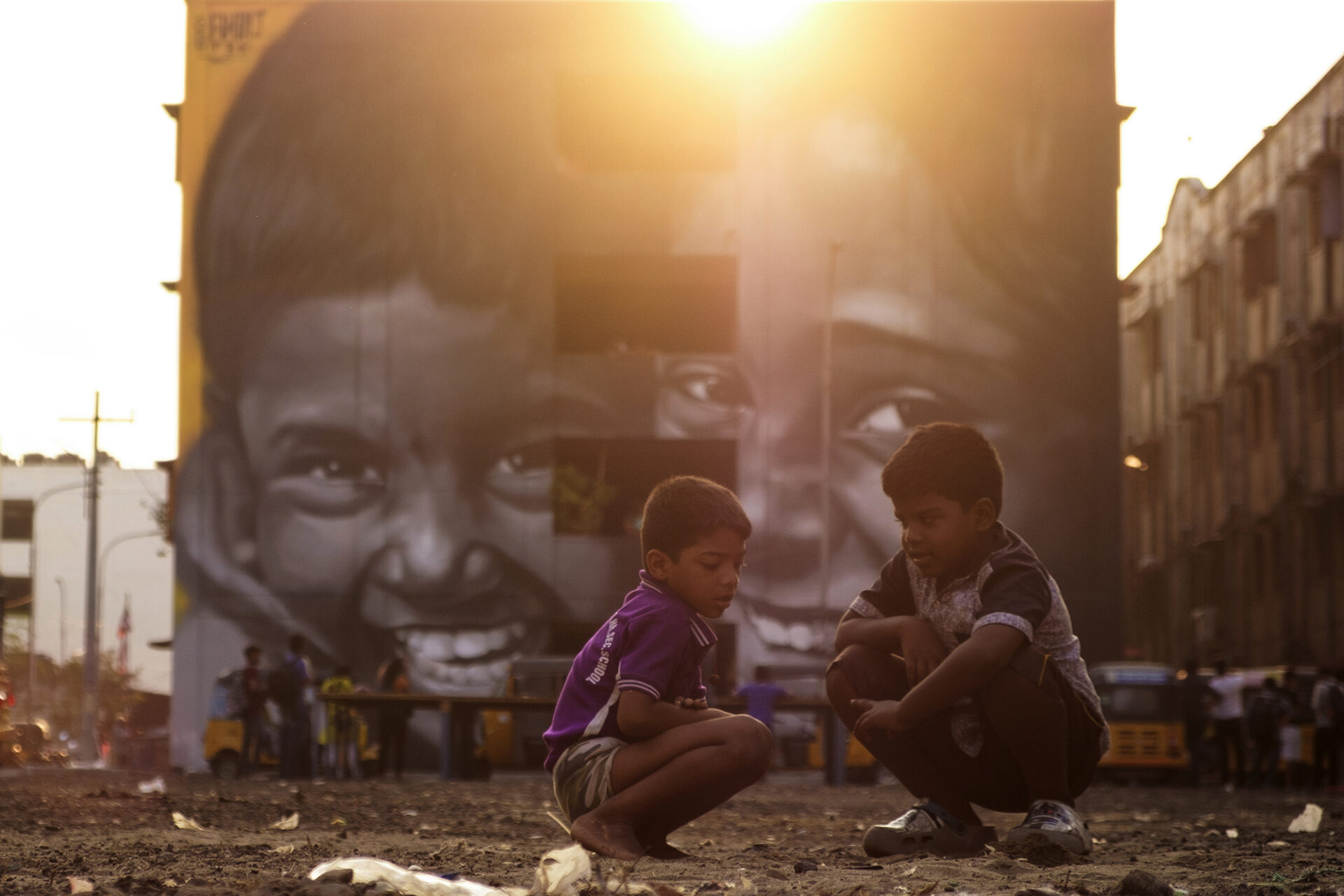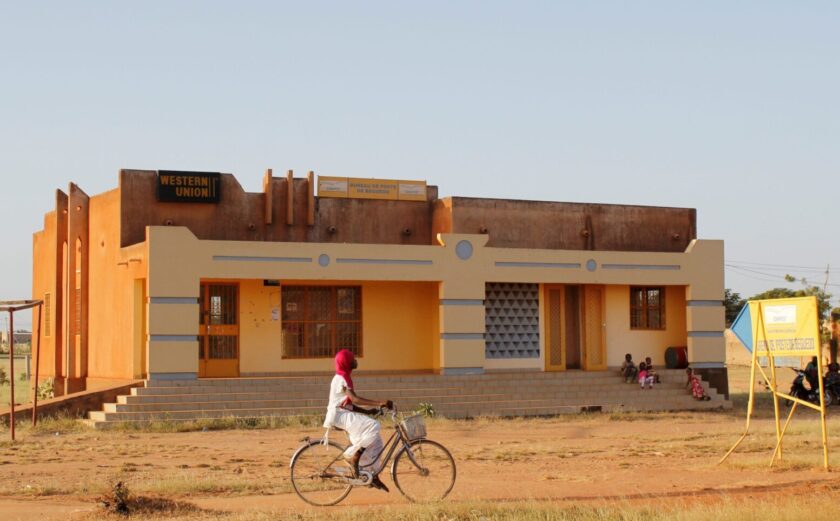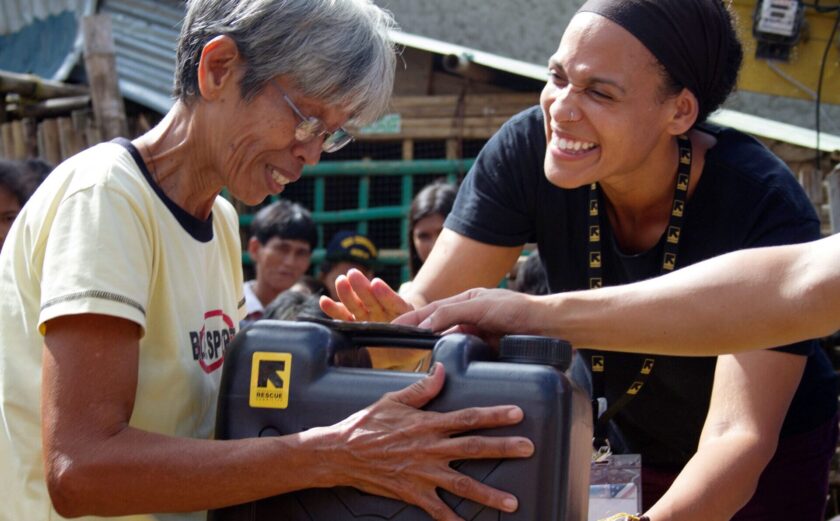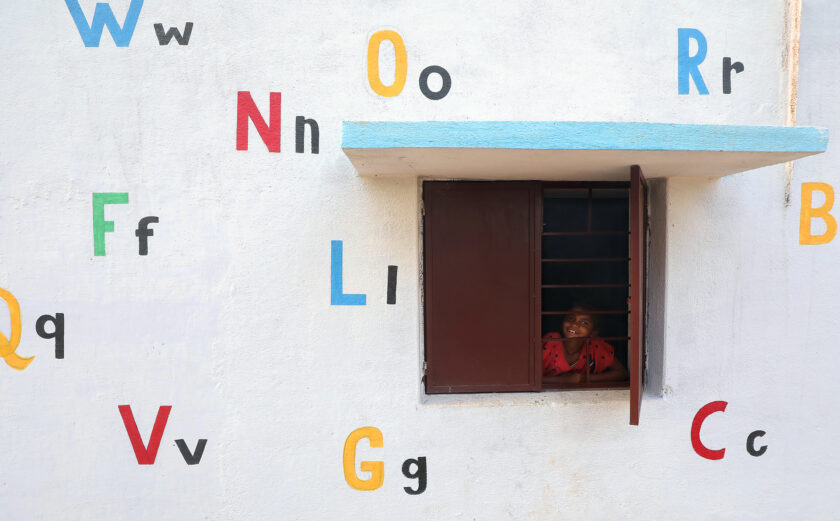
Toward Holistic Childhood Development
Whole-Child Approaches and the Nurturing Care Framework
With approximately 150 million more children living in multidimensional poverty without access to education, health care, housing, nutrition, sanitation, or water as a result of the COVID-19 pandemic, comprehensive approaches to childhood development are critical in paving the way for thriving individuals and societies.
Facing climate change, forced displacement, and the direct and secondary effects of the pandemic, children around the world need dynamic solutions to meet their developmental needs. The COVID-19 pandemic has further highlighted how narrow, siloed approaches to childhood development fall short of addressing children’s disparate needs.
From education to psychosocial health, children are facing an array of developmental roadblocks. Due to school closures, the share of children without access to education and water, sanitation, and hygiene (WASH) services increased from 47% to 56%, and 368.5 million students lost access to their most reliable source of nutrition. Twenty million girls are projected to remain out of school after the pandemic, increasing the risk of child marriage and other gendered forms of abuse. The loss of safety nets and income spurred by the pandemic has resulted in an increase in domestic abuse, negatively impacting children’s physical and mental state. Even prior to the pandemic, the number of children living near conflict zones rose from 4 million to 9 million from 2018-2019.
Recognizing the diverse setbacks hindering healthy childhood development, Whole Child Development approaches offer a promising avenue for enabling children to thrive.
Whole-Child Development and the Nurturing Care Framework
Extending beyond children’s own needs, robust approaches must involve caregivers and their communities. Whole Child Development promotes funding that addresses the intersections of childhood needs rather than limiting problem-solving to specific categories or sectors.
One such approach, the Nurturing Care framework, developed by WHO, UNICEF, and the World Bank, provides strategic direction for supporting the holistic development of children. The framework aims to inspire multiple sectors—including health, nutrition, education, labor, finance, WASH, and social and child protection—to work in new ways to address the needs of the youngest children (zero to three years of age). The framework articulates “the importance of responsive caregiving and early learning as integral components of good-quality care for young children, illustrating how existing programs can be enhanced to more comprehensively address young children’s needs.”
The five components of the framework include good health, adequate nutrition, responsive caregiving, security and safety, and opportunities for early learning. From ages zero to three, the brain develops faster than at any other time in life, forming up to 1 million new connections every second. By age five, up to 90% of a child’s brain has already developed. Recognizing this critical period in children’s lives, Nurturing Care promotes an all-encompassing approach to supporting children and their caregivers.
Extending Nurturing Care to a Life-Course Perspective
While Nurturing Care focuses on the early years in a child’s life, childhood development experts are increasingly stressing the importance of an approach that extends beyond the earliest period in a child’s life.
Dr. Maureen Black, a pediatric psychologist at the University of Maryland and distinguished fellow at RTI International, worked with colleagues to build on the Nurturing Care framework and offer a “life-course” perspective. Dr. Black and co-authors present an evidence-based argument for the extension of the framework from preconception through adolescence (zero to twenty years of age).
Organized into six developmental periods, the extension of the framework includes the preconception/prenatal; newborn/birth; infancy/toddlerhood; preschool; middle childhood; and adolescence life stages. Building on developmental gains in the earliest years of life, the extended framework recognizes the need for nurturing relationships throughout life.
According to Black and co-authors, “the life-course extension of the Nurturing Care framework is strategically positioned to enhance human capital, to attain the SDGs, and to ensure that children or adolescents are not left behind in reaching their developmental potential.”
From a donor perspective, every $1 invested in early childhood development has been shown to yield returns of up to $13. These benefits improve the physical, mental, and economic health of society and increase the capacity of countries to recover post-crisis. As children and adolescents continue to bear the tremendous costs of instability and crisis exacerbated by the pandemic, comprehensive, Whole-Child approaches can help children reach their full potential and thrive.
For more on Dr. Maureen Black’s work around extending the Nurturing Care Framework, view her presentation and discussion with InterAction Members HERE (Password: !0NL!DOG).







